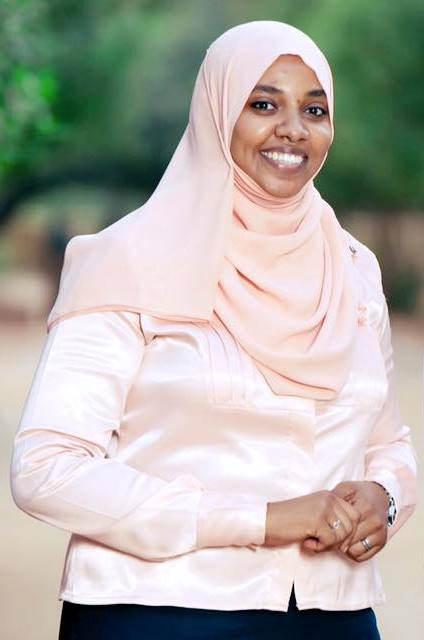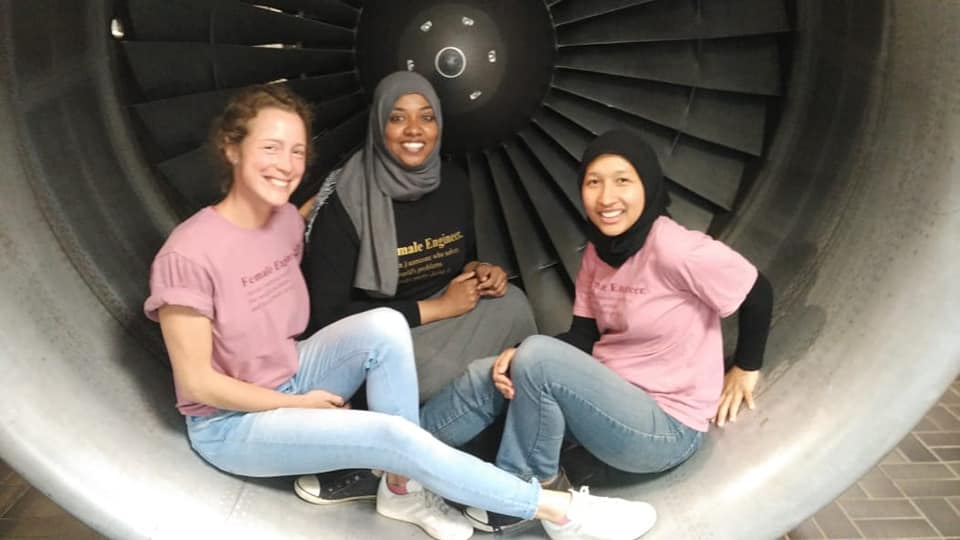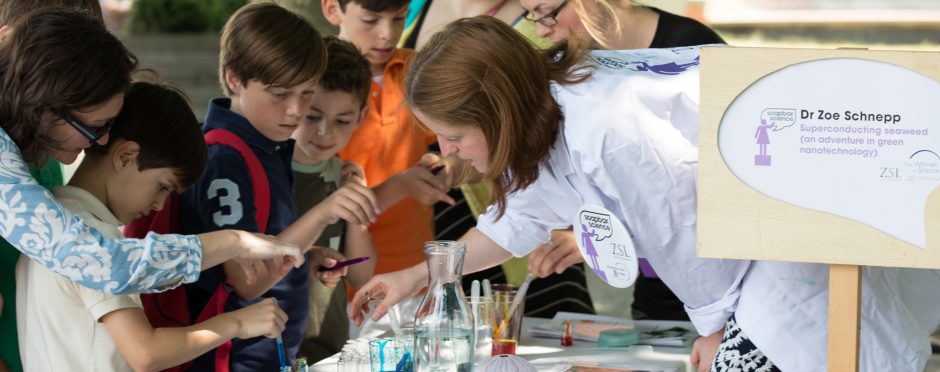 Raheeg Alamin is a lecturer at Sudan University of Science and Technology and is currently doing a PhD degree in aerospace engineering at Cranfield University. After she finished her undergraduate studies in aeronautical engineering, she worked for a year in industry before joining academia in 2010. She was granted a PECK scholarship to complete her MSc in electrical engineering at the University of Nottingham.
Raheeg Alamin is a lecturer at Sudan University of Science and Technology and is currently doing a PhD degree in aerospace engineering at Cranfield University. After she finished her undergraduate studies in aeronautical engineering, she worked for a year in industry before joining academia in 2010. She was granted a PECK scholarship to complete her MSc in electrical engineering at the University of Nottingham.
You can catch Raheeg on her soapbox as part of Soapbox Science Milton Keynes on 29th June, where her talk will be:“Let’s look closely at aircraft wings!”
SS: Raheeg, how did you get to your current position?
RA: To be honest, doing national service is a burden for fresh graduates. I joined the Engineering and Maintenance Sector of Sudan Airways for a year. As it was rotation-based training I was expecting to be able to decide which sector I really wanted to build a career in, and I was able to do that. By the end of the year, I had made my decision and joined academia. I believed that I have the ability to help students to prepare themselves for life after college. Those five years in college is not only about science, but are also about building a better self. It is a “full package” experience.
University is where academics can lecture, interact with students, share knowledge, and still stay connected with industry through research. I have been working in academia for ten years now, and I can truly say that academia has given me more than I have given. It has brought out the best in me!
SS: What, or who, inspired you to get a career in science?
RA: We are all people in our own right, but with all the bedtime stories, songs, hugs and caring, our parents’ dreams will find their way to us! I still remember how my father’s eyes sparkled when he found out that girls can study and work in aeronautical engineering. It was his dream to have a career in aviation, but he ended up going to medical school!
SS: What is the most fascinating aspect of your research/work?
RA: The multidisciplinary nature of dynamics and control is what fascinates me. In my research I am using feedback control to minimise the adverse effects of the flexible wings that are increasingly used in modern transport aircraft. This should have a big positive impact if successful, as it will lead to both emissions reductions and fuel savings for aircraft operators.
 SS: What attracted you to Soapbox Science in the first place?
SS: What attracted you to Soapbox Science in the first place?
RA: Albert Einstein once said: ”If you can’t explain it simply, you don’t understand it well enough”. This is what attracted me to Soapbox Science in the first place, more than representing women in science. I have been fortunate that Sezsy Yusuf (@sezsy) and Simone Weber are in the same research group as me. They both spoke at Soapbox Science last year, and I saw for myself the positive impact this had on their ability to communicate their science.
I always wondered if people were still questioning the role of women in science, and life in general. Why do we still need to talk about women’s rights? I used to believe that it is already obvious that we are an authentic and equal part of everything. Volunteering for Soapbox Science last year made me see things differently, and YES we do need to represent women in science!
SS: Sum up in one word your expectations for the day
RA: Excitement!
SS: If you could change one thing about the scientific culture right now, what would it be?
RA: My supervisor Dr James Whidborne said of my very first PhD proposal: ”Always remember, research is a dynamic process”. If I could change one thing, it would be to make everyone accept that research is a dynamic process. It is the key to creativity as long as you can set your goals.
SS: What would be your top recommendation to a woman studying for a PhD and considering pursuing a career in academia?
RA: Academia needs passion, ambition and patience; my advice to you if you are a woman and considering pursuing a career in academia, is to just to be yourself – that’s all it takes!
